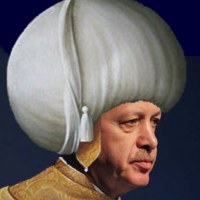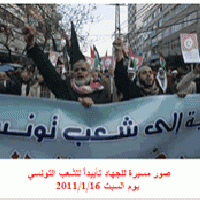![]()
Tue, Feb 15, 2011 | The Rubin Report | By Barry Rubin
What Next in Egypt? A Detailed Assessment
The Egyptian political situation has now entered a new phase. The first order of business is to write a new constitution, a process that should take months (some military spokesmen have said two months). Who is going to be assembling this new governing document and what are the parameters? Nobody knows. But this is the first point at which the joyous consensus that the tyrant is gone, everyone agrees, and all is new may begin to erode.
It isn’t possible to say much about the constitutional process but the other major process, the election of a new president, is more possible to analyze. I’d guess that these elections will be held in September and the military will rule until then.
The army does not want to rule the country. But it does want to have a major role in designing the new system, trying to ensure that Islamists don’t take over and that Egypt does not sink into chaos. In this respect, it will probably want — with backing from the establishment — a strong presidency, say along the French model, with relatively limited power for parliament.
Mission number one for the army, behind the scenes, is to prevent Muhammad ElBaradei from becoming president and help find someone who can satisfy wide-ranging aspirations without doing anything too extreme. This is especially important because, although we don’t know for sure, it seems quite possible that the constitution will create a very strong presidency, more like France than the British or U.S. system.
Why does the army not like ElBaradei? Because he is an unknown quantity, having been out of the country for thirty years and is in their eyes too close to the Americans. He also has no political experience at all. But most of all he is the Muslim Brotherhood’s candidate and that is enough to taint him in their eyes. The Brotherhood would never run a candidate of its own openly for president.
Fortunately for the military — and for Egyptians generally — ElBaradei is not very popular for many of the above-mentioned reasons plus the fact that he is too westernized for the tastes of many Egyptians. Remember, despite his prominence in the Western media he was never the opposition leader.
So who else is there? One candidate who already seems to be mounting a behind-the-scenes campaign is Amr Moussa, former Egyptian foreign minister and Arab League secretary-general. If ElBaradei is dangerous because of his connection with the Muslim Brotherhood, radical impulses, and lack of experience, Moussa is dangerous because of his mercurial personality and very radical views.
There must be other possibilities politicians who have had experience of high office as prime minister or cabinet members in past governments yet have avoided being tainted by corruption or repression. We will no doubt soon be hearing a number of such names.
Regarding the emergent political blocs, they should be four main ones, though each of these could be split into many factions and rival forces.
“Establishment” Reformers: Muhammad ElBaradei has been practically coronated by foreign observers yet his appeal is untested and his organization almost non-existent. One of the most important “secrets” of Egypt today is the degree of his dependence on the Brotherhood. Indeed, of all the possible opposition candidates he is about the closest to the Brotherhood. That’s no coincidence: that’s precisely why he has flourished. And the Brotherhood will run on a joint ticket with him.
Incidentally, the previous opposition candidate for president, Ayman Nour, has similar problems. And he also now says the Egypt-Israel peace treaty should be amended or voted on in a referendum, which would surely abrogate the agreement. Remember that Nour’s Kefaya group was taken over by the Muslim Brotherhood who put Egypt’s leading antisemite as its leader, though he has died.
The idealistic democracy advocates of the April 6 and other movements are already split over whether or not to trust the army. It is unlikely that they will be able to build a major party.
Another question is whether a reformist candidate could emerge independent of association with the Brotherhood. The “Catch-22” here is how would such an urbanized, westernized, figure without an organization appeal to massive numbers of Egyptians? If the man is found it might happen.
The Islamist Party: The Muslim Brotherhood will not take power and Egypt will not become an Islamist state overnight. The Brotherhood is not stupid. While wealthy, secularized, urban Egyptians may look at them as a peasant rabble — just as the equivalent Iranians viewed their Islamists and such Lebanese saw Hizballah — this group has maneuvered very skillfully in the past.
It will seek a front man for president and then either form its own sheep’s clothing party or dominate another party from behind the scenes. But that is also its weakness: it has probably chosen the wrong man for its presidential candidate.
Nevertheless, it will be a very important factor in any future parliament, a drive beginning with the Brotherhood starting to discuss plans to become a political party. At the barest minimum the Brotherhood can expect 15 percent in a very divided parliament and perhaps double that amount. They will be a player and a force to be courted by anyone who would want to rule, meaning concessions to its demands.
Incidentally, does anyone else think it rather strange that after ridiculing the point I and others have been making about the Muslim Brotherhood being strong and radical, the New York Times just drops this sentence into the middle of an article:
“Egypt’s revolution is far from decided, and the Muslim Brotherhood remains the most popular and best-organized opposition forces in the country, poised to play a crucial role in the transition and its aftermath.” (emphasis added).
An Establishment party: The ruling NDP, even if it changes its name or appears in a totally new guise, might get no support at all, tainted as it is by association with the old regime. But there will doubtless be a new party of the establishment. Enjoying backing from existing institutions and wealthier segments of society, this party could win if it finds the right candidate.
The Left: Quasi-Marxists and extreme nationalists who may fragment or produce a joint ticket. These parties might not run a presidential candidate, yet they will be a factor in parliamentary politics. They could never take power in their own right but could be important in a coalition with nationalists and the Brotherhood. Don’t assume such a partnership couldn’t happen.
The nationalists: Ironically, despite the apparent repudiation of the regime, these are people who want a return to the regime, not of Mubarak but of a romanticized Nasserist era, which most of the population is too young to remember. Of course, this would be different from the historic Arab nationalism, a blend of Arabism, Egyptian patriotism, with anti-American and anti-Israel flavorings.
This is the kind of thing Moussa represents. He’s more popular than ElBaradei, knows how to be a demagogue, is familiar to Egyptians, and seems more of a known quantity, and is anti-Israel and anti-American enough to galvanize the masses.
The problem is that both outcomes are bad: with ElBaradei you get the possibility of growing Islamism; with Moussa there is an updated form of radical nationalism. The idea of some idealistic, good government reformer winning seems slim at best, partly because it is hard to find someone like that and it is hard for someone like that to appeal to the masses.
And here’s a possible paradox. If the Muslim Brotherhood was going to take over the government altogether and make Egypt an Islamist republic, the army would take action but that does not apply to a radical nationalist Egypt, with which many younger officers would sympathize.
But the situation favors demagoguery. Already, Egyptians are demanding pay raises and higher subsidies. Where’s the money going to come from? The situation is ripe for someone to say: loot the rich, undo privatization, create plenty of useless government jobs, hate the Americans who are exploiting us, and it’s all Israel’s fault.
You can start worrying because the Washington Post has just declared Amr Moussa to be a moderate.
About the author,
Barry Rubin is director of the Global Research in International Affairs (GLORIA) Center and editor of the Middle East Review of International Affairs (MERIA) Journal. His books include Islamic Fundamentalists in Egyptian Politics and The Muslim Brotherhood (Palgrave-Macmillan); and The Long War for Freedom: The Arab Struggle for Democracy in the Middle East, a study of Arab reform movements (Wiley). GLORIA Center site: Click here. His blog, Rubin Reports, Click here.



 RSS
RSS











What Next in #Egypt? A Detailed Assessment | #Jan25 #Islamism #MuslimBrotherhood http://j.mp/eehJlB
RT @CrethiPlethi: What Next in #Egypt? A Detailed Assessment | #Jan25 #Islamism #MuslimBrotherhood http://j.mp/eehJlB